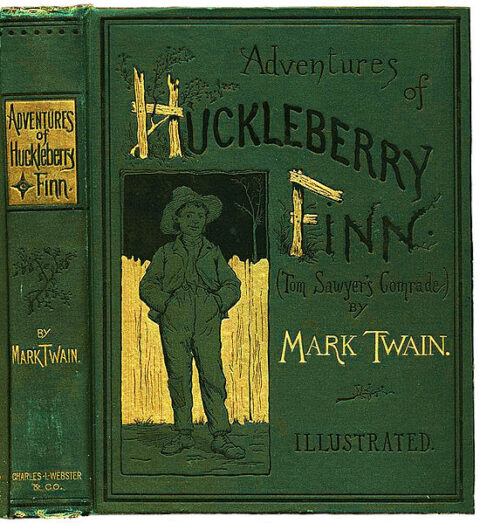In Quillette, Tim DeRoche re-reads Huck Finn after finally engaging with Harriet Beecher Stowe’s Uncle Tom’s Cabin, and finds the two books are not in opposition but should be read as complementing each other:
Twain scholar Laura Trombley (now the President of Southwestern University in Texas) once told me that Huck Finn isn’t about slavery. “It’s about an abused boy looking for a safe haven,” she said. It was daring for Twain to give a voice to the untutored, unwashed son of the town drunk.
You don’t know about me without you have read a book by the name of “The Adventures of Tom Sawyer”; but that ain’t no matter. That book was made by Mr. Mark Twain, and he told the truth, mainly. There was things which he stretched, but mainly he told the truth. That is nothing. I never seen anybody but lied one time or another …
Huck’s voice, often described as “realistic”, is actually a highly stylized literary device and a brilliant riff on how real boys talk. In these first few sentences, Twain inserts himself into the story and sets his protagonist up to be an unreliable narrator, as Huck admits that there will be “stretchers” of his own along the way.
Huck Finn is our national epic, much like The Odyssey is for Greece or the Nibelungenlied is for Germany. Like those older epics, Huck Finn can be read as version of a Jungian myth, in which the hero descends into the Underworld, undergoes trials and tribulations, and returns to us reborn. This story of two travelers on an epic journey is an archetype of our culture, which is why it is retold with such frequency. It’s possible to read every American road novel or movie as a reworking of Huck Finn.
Twain may not have written in verse, but Huck’s narration is beautiful and lyrical and so distinctively American that it has influenced generations of American writers, both popular and literary. That indelible voice, at once innocent and highly perceptive, is the fixed moral point from which Twain can then satirize so many different segments of his beloved country — preachers, con men, politicians, actors, and ordinary gullible Americans.
The book has been criticized as one of the first “white savior” narratives, but this gets it exactly backwards. Huck doesn’t save anyone in the novel. (One of Jane Smiley’s criticisms, in fact, is that Huck doesn’t “act” to save his friend.) It is actually Jim, the slave, who saves Huck — both literally and figuratively. It is Jim who provides Huck with a safe haven, and it is Jim who calls Huck to account when Huck treats him as less than human: “En all you wuz thinkin ’bout wuz how you could make a fool uv ole Jim wid a lie. Dat truck dah is trash, en trash is what people is dat puts dirt on de head er de fren’s en makes ’em ashamed.”
Huck eventually humbles himself before Jim and tells us, “I didn’t do him no more mean tricks, and I wouldn’t done that one if I’d a knowed it would make him feel that way.” Huck may be the protagonist of this story, but the slave Jim is its moral hero. It is Jim who reveals himself to be a fugitive slave so that Tom Sawyer can get medical attention for his gunshot wound. And after he is freed from slavery, Jim heads home to assume his responsibilities as a husband and father.
In contrast to Jim, Huck yearns for adventure and escape. Forced to live with the Widow Douglas and Miss Watson at the start of the book, he resents their attempts to “sivilize” him. He feels “all cramped up” by the clothes they make him wear, and he dismisses their Biblical teaching because he “don’t take no stock in dead people”. Instead of returning home with Jim, Huck tells us that he intends to “light out for the territory”. He represents one aspect of the American spirit — ironic, secular, individualistic.






